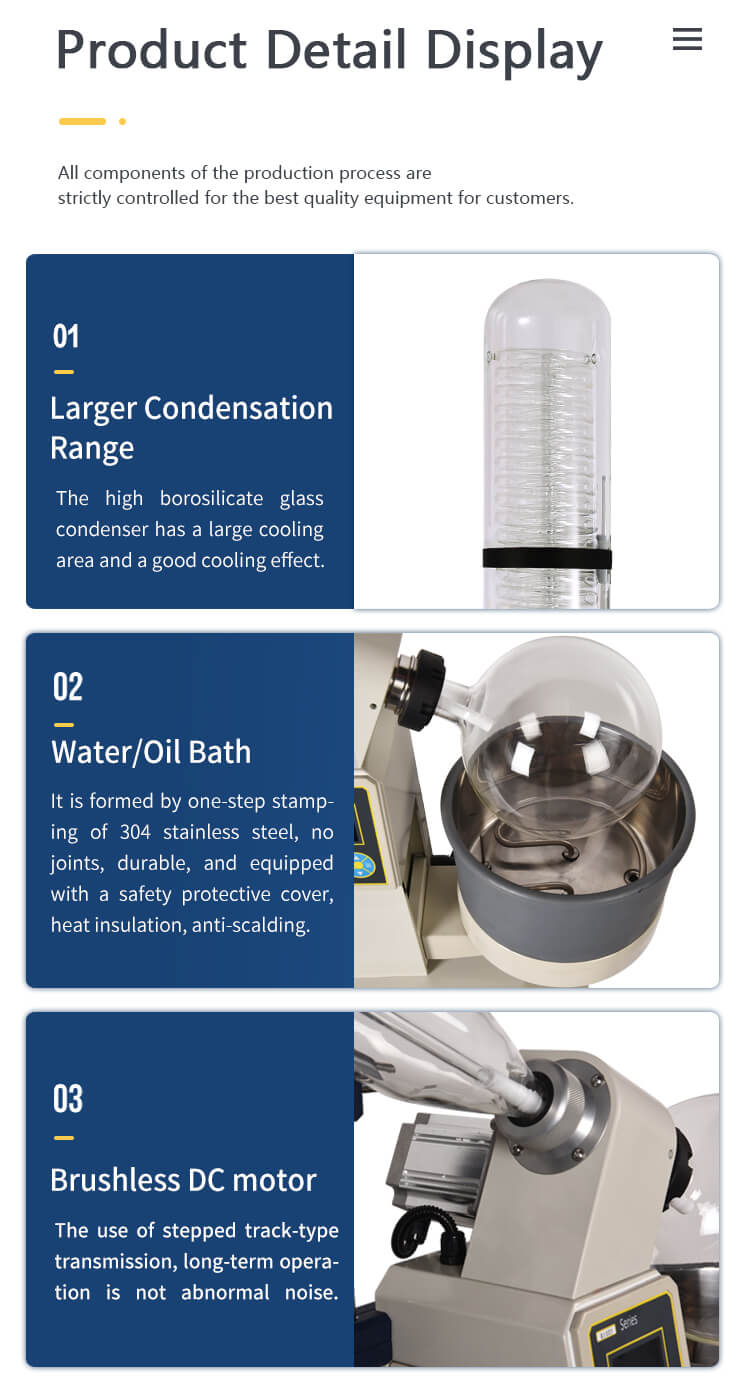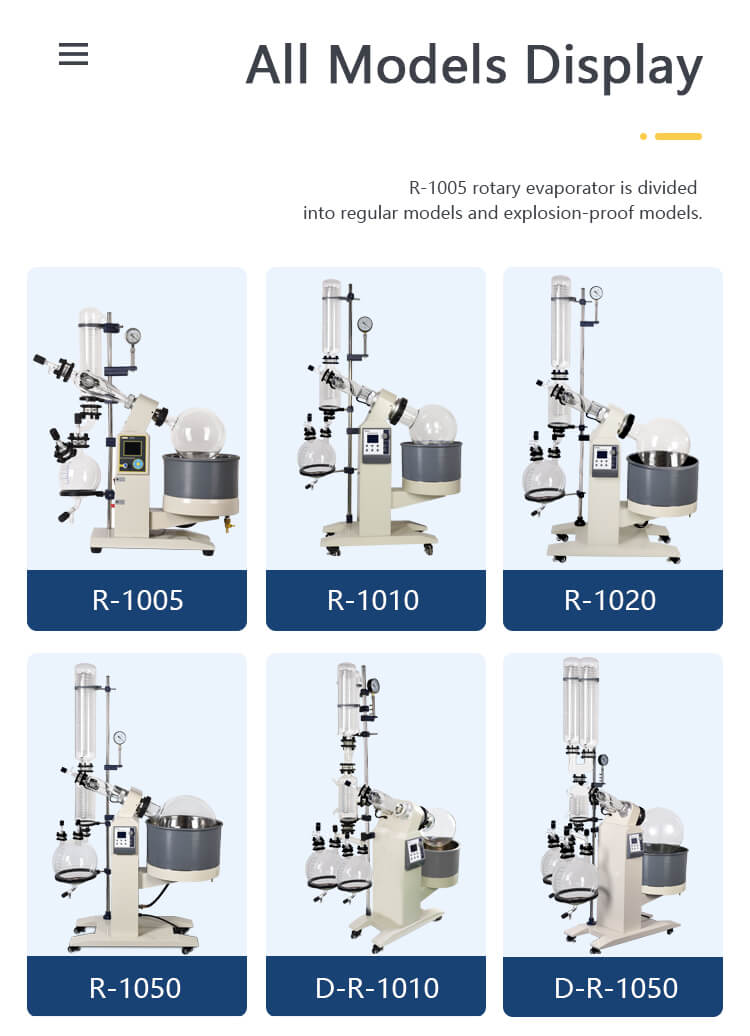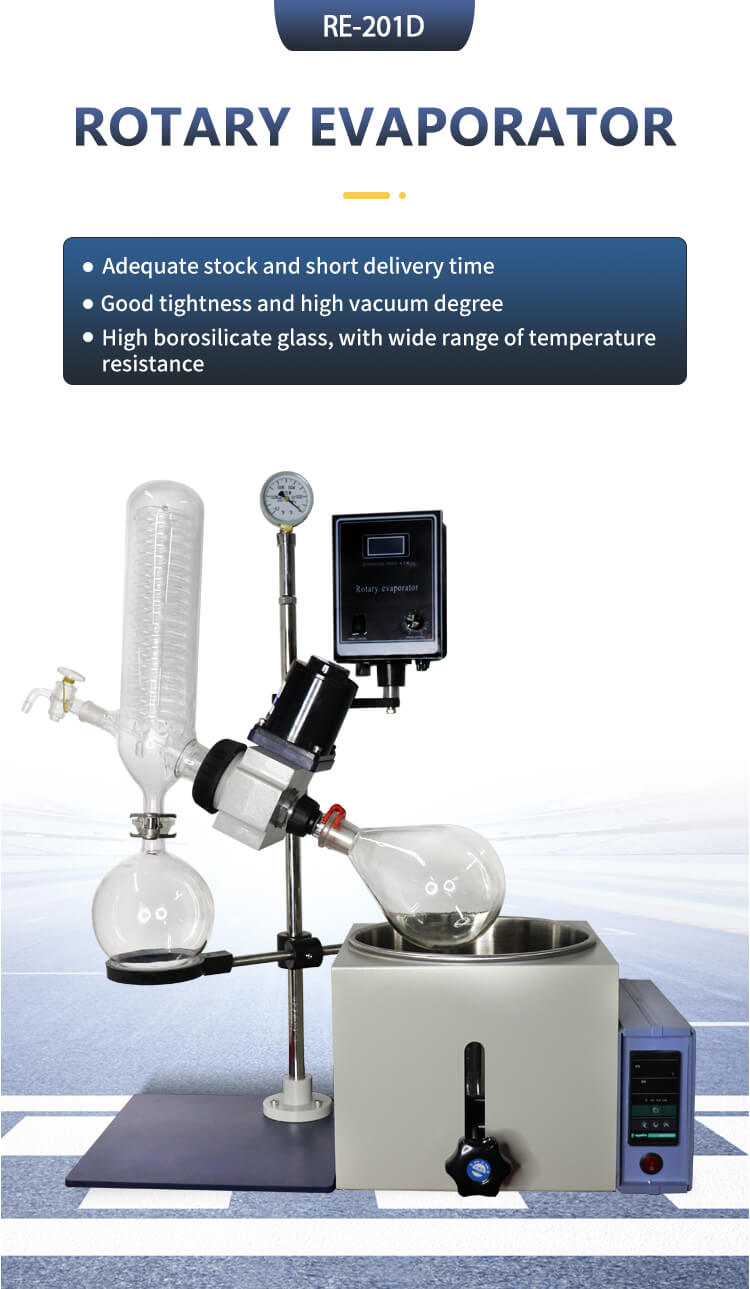The laboratory rotary evaporator is a game-changer in the field of scientific distillation. Its innovative design and advanced functionality have revolutionized the way researchers and scientists separate and purify chemical compounds. With its ability to efficiently and effectively remove solvents, this device has become an indispensable tool in laboratories around the world.

What is a Rotary Evaporator?
A rotary evaporator, also known as a rotovap, is a device used in laboratories to distill solvents under vacuum. It consists of a heating bath, spinning flask, condenser, and a vacuum pump. This apparatus works on the principle of reducing pressure, lowering the boiling point of the solvent, and facilitating its evaporation.

How Does it Work?
The laboratory rotary evaporator operates by rotating the sample flask, creating a thin film of the liquid on the inner surface. This increases the evaporation surface area and allows for better heat transfer, leading to faster evaporation. The evaporated solvent then travels through the condenser, where it condenses and is collected in a separate flask.

Applications in Various Fields
The rotary evaporator finds applications in a wide range of scientific disciplines. In chemistry, it is used for solvent removal, resin purification, and extraction of volatile components from natural products. In biology and pharmaceutical research, it is utilized for solvent-based compound preparation and concentration. Additionally, it is employed in the petroleum industry for crude oil distillation and analysis.
Advantages of a Rotary Evaporator
The laboratory rotary evaporator offers numerous advantages over alternative methods of distillation:

- Efficiency: The device provides rapid and efficient solvent evaporation, saving both time and energy.
- Precision Control: Temperature and rotation speed can be adjusted and controlled, allowing for precise distillation.
- Limited Exposure to Heat: The vacuum conditions and efficient heat transfer minimize the risk of heat-sensitive compounds degrading during distillation.
- Easy to Use: With its user-friendly interface and automation features, operating a rotary evaporator is straightforward and convenient.
- Space-saving: The compact design of the rotovap makes it ideal for laboratories with limited space.
Conclusion
The laboratory rotary evaporator has revolutionized distillation processes in scientific research, offering enhanced efficiency, precision, and safety. Its versatility and broad range of applications make it an essential tool for countless scientists and researchers worldwide. As technology continues to advance, we can expect further advancements in this field, pushing the boundaries of scientific distillation.





